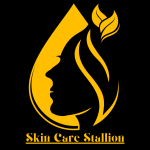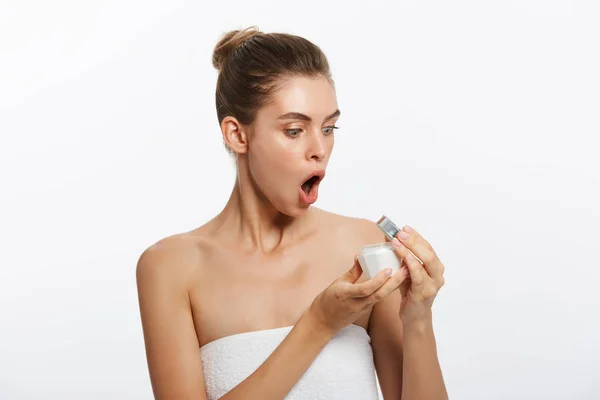Can We Use Skincare After Expiration Date: Unveiling the Risks and Safety Concerns for Your Skin. In the quest for radiant skin, we often stock up on an array of skincare products, only to find some untouched long past their expiration dates.
This raises a crucial question: can we still use skincare products after they’ve expired? While the temptation to avoid waste is strong, the potential risks and benefits need careful consideration
. In this article, we explore the science behind skincare expiration dates, the effects of using expired products, and expert advice on ensuring your skincare routine remains safe and effective.
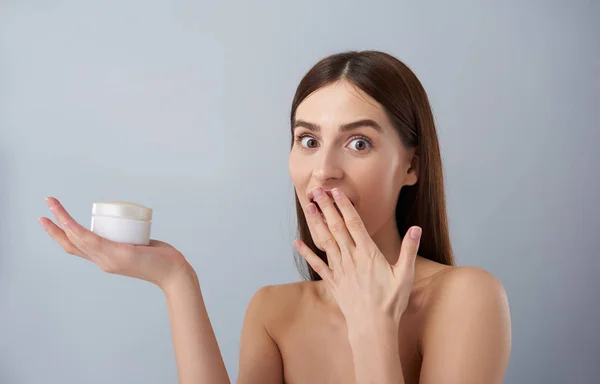
Can We Use Skincare After Expiration Date
Using skincare products after their expiration date is not recommended. Expired products can lose effectiveness and may cause skin irritation or infections.
Preservatives in skincare break down over time, leading to bacterial growth. Check expiration dates to ensure product safety and efficacy. Replace old skincare items promptly to protect your skin’s health.
Why Expiration Dates Matter
Expiration dates on skincare products are crucial for maintaining their effectiveness and safety. Over time, active ingredients in these products degrade, reducing their ability to benefit your skin. For example, sunscreens lose their UV protection, while moisturizers might not hydrate as effectively.
Additionally, preservatives, which prevent bacterial and fungal growth, lose their potency, increasing the risk of contamination. This can lead to skin irritations, breakouts, or even infections. Therefore, adhering to expiration dates ensures you receive the full benefits of your skincare routine without compromising your skin’s health.
Signs Your Skincare Has Expired
Recognizing expired skincare products is essential to avoid adverse reactions. Common signs include changes in color, texture, or smell. A once smooth cream may become lumpy, or a clear serum might turn cloudy. An off-putting odor is another indicator that the product has gone bad.
If you notice any of these changes, it’s best to discontinue use immediately. Also, check for separation of ingredients, as this can signify the breakdown of the formula. Trust your senses and the expiration date to ensure you’re applying safe, effective products to your skin.
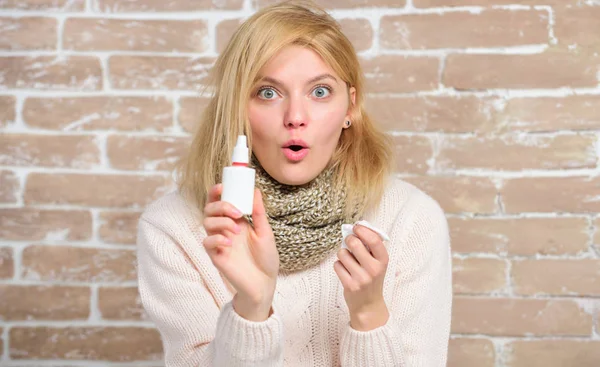
Potential Risks of Using Expired Skincare
Using expired skincare products poses several risks. The most immediate danger is skin irritation, which can manifest as redness, itching, or a rash. More severe reactions include infections, especially if the product has become contaminated with bacteria or mold.
Additionally, expired products may clog pores, leading to acne breakouts. Even if you don’t experience visible reactions, using ineffective products means your skin isn’t receiving the intended benefits, which can hinder your skincare goals. Prioritize your skin’s health by regularly updating your skincare inventory and discarding expired items.
How to Properly Store Skincare Products
Proper storage of skincare products can extend their shelf life and maintain their effectiveness. Keep products in a cool, dry place, away from direct sunlight and heat sources.
Bathrooms, while convenient, are often humid and warm, which can accelerate the degradation of skincare ingredients. Instead, consider storing your products in a bedroom drawer or a dedicated skincare fridge. Always ensure caps and lids are tightly sealed to prevent air and bacteria from entering.
By following these storage tips, you can maximize the lifespan of your skincare products and ensure they remain safe and effective until their expiration date.
Understanding Skincare Expiration Dates
Definition of Expiration Dates on Skincare Products
Expiration dates on skincare products indicate the last date a product is guaranteed to perform as expected. They ensure product safety and efficacy. Keywords include “skincare shelf life,” “product safety,” “cosmetic expiration,” and “efficacy.”
How Expiration Dates Are Determined by Manufacturers
Manufacturers determine expiration dates through stability testing. They assess product integrity, ingredient potency, and microbial contamination over time.
Differences Between “Use By,” “Best Before,” and “Expiration Date”
“Use by” dates ensure peak freshness and safety. “Best before” dates suggest when the product performs best but is still safe after. “Expiration date” marks when the product may no longer be safe. Related terms are “product freshness,” “safety guidelines,” “shelf life,” “optimal performance,” and “safety expiration.”
Potential Risks of Using Expired Skincare Products
Using expired skincare products poses several risks that can affect your skin’s health and appearance. One major issue is decreased efficacy.
Over time, active ingredients lose their potency, which results in reduced effectiveness in addressing skin concerns like acne, wrinkles, or hyperpigmentation. This means the product won’t deliver the benefits you expect, rendering your skincare routine less effective.
Another significant risk is the potential for skin irritation and adverse reactions. As products age, preservatives break down, increasing the risk of bacterial contamination. This can lead to infections, rashes, and other skin issues. Many people experience redness, itching, or breakouts after using expired skincare items.
Changes in product consistency and appearance are also common with expired skincare products. Ingredients may separate, leading to an uneven texture. Additionally, changes in color and smell are indicators that the product has gone bad.
These alterations not only make the product less pleasant to use but can also signal a decrease in its overall quality.
To avoid these risks, always check expiration dates and store your skincare products properly. Use terms like “expired skincare,” “active ingredients,” “skin irritation,” “bacterial contamination,” “product consistency,” and “color changes” to ensure your content is SEO-optimized and informative.
Factors Influencing the Longevity of Skincare Products
Packaging and Storage Conditions
Air-Tight Containers vs. Jars
Air-tight containers significantly extend the shelf life of skincare products. These containers prevent exposure to air, which can degrade active ingredients.
On the other hand, jars often expose products to air and contaminants, reducing their effectiveness over time. Consumers often look for “airless pumps” or “sealed packaging” to ensure product longevity.
Impact of Light, Heat, and Humidity
Skincare products should be stored in cool, dark places to maintain their potency. Light, especially UV rays, can break down key ingredients, diminishing their effectiveness.
Heat accelerates chemical reactions, leading to faster degradation. Humidity can introduce moisture, fostering bacterial growth. Terms like “store in a cool, dry place” or “keep away from sunlight” are common storage recommendations.
Types of Ingredients
Stability of Natural vs. Synthetic Ingredients
Natural ingredients often have shorter shelf lives compared to synthetic ones. They lack the preservatives that extend the longevity of synthetic compounds. However, synthetic ingredients can sometimes cause skin irritation, leading consumers to prefer “organic” or “all-natural” labels despite their shorter shelf life.
Shelf Life of Common Active Ingredients
Active ingredients like retinol and vitamin C are highly effective but notoriously unstable. Retinol can degrade quickly when exposed to air and light, while vitamin C oxidizes easily, losing its potency. Phrases like “retinol creams” and “vitamin C serums” are popular but should be used within their recommended timeframes.
Frequency of Use and Contamination
Introduction of Bacteria Through Fingers or Applicators
Each time a product is used, especially from jars, there is a risk of introducing bacteria. This contamination can cause the product to spoil faster and may lead to skin infections. It’s advisable to use clean spatulas or dispensers to minimize this risk. Common advice includes “avoid dipping fingers” and “use clean applicators.”
Tips for Minimizing Contamination
To keep skincare products safe and effective, always use clean hands or tools. Store products properly, keep lids tightly closed, and avoid exposing products to extreme temperatures. People often search for “how to prevent skincare contamination” and “best practices for skincare hygiene” to find these tips.

Identifying Expired Skincare Products
Identifying expired skincare products is crucial for maintaining skin health and safety. When reading and understanding product labels, look for expiration dates and storage instructions.
Common signs of expired products include changes in smell, color, and texture, along with the appearance of mold or separation of ingredients.
It’s essential to keep track of purchase and opening dates to ensure product efficacy and safety. By recognizing these indicators early, you can avoid potential skin irritations and infections.
Case Studies and Expert Opinions
Dermatologists often debate the implications of using expired skincare products, delving into their efficacy and safety. Expert opinions vary widely, with some advocating cautious use based on product type and packaging.
Real-life testimonies highlight mixed experiences, from minimal effects to adverse reactions. Research studies scrutinize the chemical stability and microbial growth in expired products, shedding light on potential risks.
Understanding these perspectives and analyses is crucial for informed skincare decisions, ensuring both effectiveness and safety.
Alternatives to Using Expired Skincare Products
When faced with expired skincare products, proper disposal methods are crucial to prevent skin irritation or infections. Recycling or using community hazardous waste programs ensures environmentally responsible disposal. Alternatively, repurposing expired items can be practical.
Expired moisturizers can serve as nourishing body lotions, while cleansers find new life in household cleaning tasks. Preventative measures include purchasing smaller sizes to use products before expiration and storing them in cool, dark places to extend shelf life.
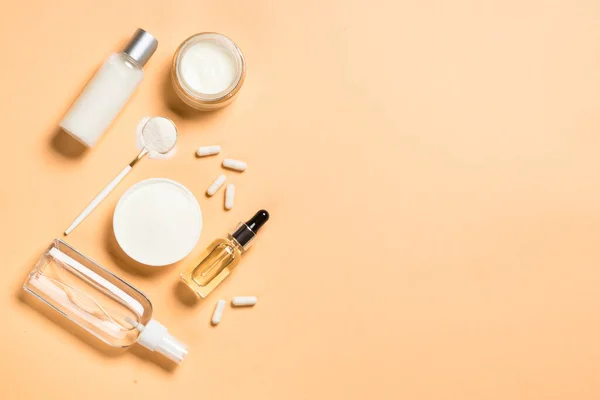
FAQs
What happens if I use skincare products after their expiration date?
Using skincare products past their expiration date can lead to reduced effectiveness and potential skin irritation. The active ingredients may degrade over time, making them less potent. Additionally, expired products can harbor bacteria, leading to skin infections or allergic reactions.
How can I tell if my skincare product has expired?
Most skincare products have an expiration date printed on the packaging, often marked with a symbol of an open jar followed by a number (e.g., 12M for 12 months). If the date is not clear, look for changes in color, texture, or smell. If the product smells off, changes color, or separates, it’s likely expired.
Are there any skincare products that are safe to use after expiration?
While it’s generally not recommended to use expired skincare products, some may still be safe but less effective. Products in airtight containers with minimal exposure to air and bacteria may last slightly longer. However, it’s best to err on the side of caution and replace expired items.
Can expired skincare products cause skin problems?
Yes, using expired skincare products can cause various skin issues such as redness, irritation, rashes, or even infections. The breakdown of ingredients can lead to chemical changes, which may harm the skin rather than benefit it.
Is it safe to use unopened skincare products after their expiration date?
Unopened products have a longer shelf life compared to opened ones, but they can still expire. Over time, even unopened products can degrade due to factors like temperature fluctuations and light exposure. Always check the expiration date before using.
What should I do with expired skincare products?
Expired skincare products should be disposed of properly. Do not flush them down the toilet or sink as they can harm the environment. Instead, check if your local community has specific disposal guidelines for cosmetics and skincare products.
Can I extend the shelf life of my skincare products?
You can extend the shelf life of your skincare products by storing them properly. Keep them in a cool, dry place away from direct sunlight and humidity. Ensure the lids are tightly closed after each use to prevent contamination and exposure to air.
How often should I check my skincare products for expiration?
It’s a good practice to check your skincare products every few months. This habit helps you stay aware of their condition and ensures you’re not using anything that could potentially harm your skin.
Why do skincare products have expiration dates?
Expiration dates on skincare products indicate the period during which the product is expected to remain effective and safe for use. Over time, ingredients can degrade, reducing their efficacy and increasing the risk of bacterial contamination.
Are natural or organic skincare products more likely to expire sooner?
Yes, natural or organic skincare products often have shorter shelf lives because they typically lack synthetic preservatives. As a result, they can spoil faster and may need to be used more quickly compared to conventional products with longer-lasting preservatives.
conclusion
Using skincare products after their expiration date is not recommended. Expired products can lose their effectiveness, and their chemical composition may change, potentially causing skin irritation or allergic reactions. The preservatives in the product might break down, allowing bacteria and mold to grow.
To ensure the health and safety of your skin, it’s best to adhere to the expiration dates and replace old products with fresh ones. Prioritizing products within their shelf life ensures you receive the full benefits and avoid any adverse effects.
